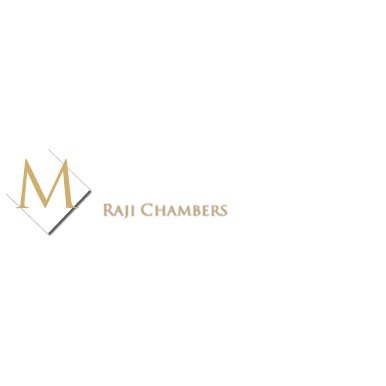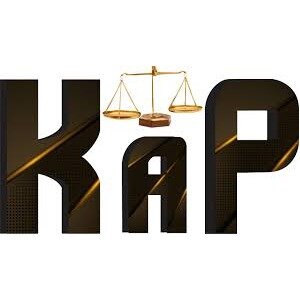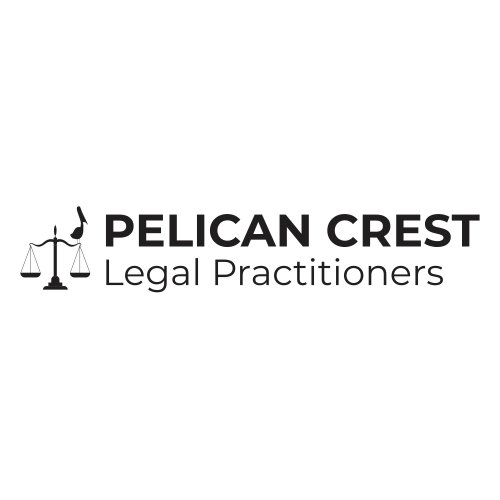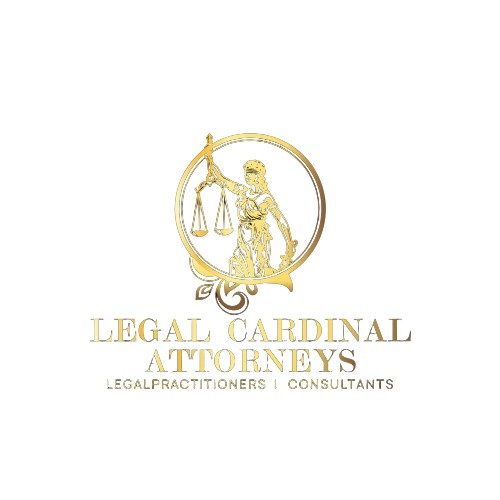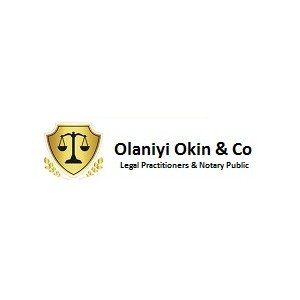Best Merger & Acquisition Lawyers in Ibadan
Share your needs with us, get contacted by law firms.
Free. Takes 2 min.
List of the best lawyers in Ibadan, Nigeria
About Merger & Acquisition Law in Ibadan, Nigeria
Merger & Acquisition (M&A) law in Ibadan, Nigeria, is a specialized area of law that deals with the consolidation of companies or assets. These transactions are complex and involve several legal, financial, and strategic considerations. Ibadan, as one of Nigeria's prominent cities, is home to many businesses and industries seeking growth via mergers and acquisitions. The legal landscape in Ibadan is governed by federal and state laws, including the Nigerian Companies and Allied Matters Act, the Investments and Securities Act, and the Nigerian Stock Exchange regulations where applicable. Understanding the local intricacies and legal framework is crucial for businesses and individuals involved in M&A activities within this region.
Why You May Need a Lawyer
Engaging in M&A activities involves significant legal complexities and risks. You may need a lawyer in the following situations:
- Legal Compliance: To ensure that all legal provisions and regulatory requirements are met during the transaction process.
- Due Diligence: Lawyers can perform a comprehensive review of the target company's legal standing, identifying potential liabilities and risks.
- Contract Negotiation: A lawyer can help draft and negotiate the transaction documents to protect your interests.
- Dispute Resolution: In case of conflicts or disagreements, a lawyer can help mediate or represent you in court.
- Strategic Advice: Lawyers can provide guidance on structuring the transaction to maximize business and tax benefits.
Local Laws Overview
Key aspects of local laws relevant to M&A in Ibadan include:
- Companies and Allied Matters Act (CAMA): This is the primary legislation governing company law in Nigeria. It outlines the legal framework for company formation, registration, and mergers.
- Investments and Securities Act (ISA): Governs transactions such as take-overs, mergers, and acquisitions, ensuring transparent and orderly securities markets.
- Nigerian Stock Exchange Regulations: For public companies, compliance with the NSE’s listing requirements is essential during M&A transactions.
- Federal Competition and Consumer Protection Act (FCCPA): Oversees anti-competitive practices, mergers, and acquisitions to promote fair competition in the market.
- Tax Regulations: Tax implications of M&A transactions must be considered, as they can significantly affect the overall cost and benefits.
Frequently Asked Questions
What is the first step in the M&A process?
The first step is typically the strategic planning phase, where a company identifies its goals and potential targets for merger or acquisition.
How long does a typical M&A deal take?
The duration of an M&A deal can vary greatly, from several months to over a year, depending on the complexity of the transaction.
What is due diligence in M&A?
Due diligence is a comprehensive appraisal of a business undertaken by a prospective buyer, particularly to establish its assets and liabilities and evaluate its commercial potential.
Are there any restrictions on foreign companies acquiring local businesses in Ibadan?
Yes, foreign acquisitions are subject to several regulatory approvals and compliance with national laws like the Nigerian Investment Promotion Commission Act and related sectoral regulations.
What are the common challenges faced during M&A transactions?
Challenges include cultural integration, regulatory compliance, valuation inaccuracies, and the complexities of combining operations and systems.
Do public companies face different rules than private ones in M&A?
Yes, public companies are subject to more stringent disclosure requirements and regulatory oversight, especially on issues related to shareholder rights and stock exchange regulations.
How are employees affected by M&A transactions?
Employees may face changes in job roles, redundancies, or cultural shifts during M&A. Clear communication and proper integration plans are essential.
What is the role of the Securities and Exchange Commission in M&A?
The SEC regulates the capital markets in Nigeria, ensuring that mergers, acquisitions, and public offerings adhere to the established legal standards.
How is a merger different from an acquisition?
In a merger, two companies agree to combine and form a new entity, whereas in an acquisition, one company purchases and absorbs another.
Can a merger or acquisition be reversed?
Reversing a completed M&A deal is challenging and rare, requiring significant legal action and agreement from all parties involved.
Additional Resources
For more information, you may consider reaching out to the following resources:
- The Nigerian Bar Association: Provides a directory of legal practitioners specializing in M&A.
- Nigerian Investment Promotion Commission: Offers guidance on foreign investments and associated legal requirements.
- Securities and Exchange Commission Nigeria: For regulations on market-based M&A transactions.
Next Steps
If you require legal assistance in M&A, consider taking the following steps:
- Research and select a lawyer or law firm with expertise in M&A within the Nigerian context.
- Schedule consultations to discuss your transaction goals and obtain advice on legal and strategic considerations.
- Ensure understanding of your rights and obligations under Nigerian laws by collaborating closely with legal experts.
Understanding the complexities involved and seeking the right legal guidance is crucial to ensuring a successful merger or acquisition.
Lawzana helps you find the best lawyers and law firms in Ibadan through a curated and pre-screened list of qualified legal professionals. Our platform offers rankings and detailed profiles of attorneys and law firms, allowing you to compare based on practice areas, including Merger & Acquisition, experience, and client feedback.
Each profile includes a description of the firm's areas of practice, client reviews, team members and partners, year of establishment, spoken languages, office locations, contact information, social media presence, and any published articles or resources. Most firms on our platform speak English and are experienced in both local and international legal matters.
Get a quote from top-rated law firms in Ibadan, Nigeria — quickly, securely, and without unnecessary hassle.
Disclaimer:
The information provided on this page is for general informational purposes only and does not constitute legal advice. While we strive to ensure the accuracy and relevance of the content, legal information may change over time, and interpretations of the law can vary. You should always consult with a qualified legal professional for advice specific to your situation.
We disclaim all liability for actions taken or not taken based on the content of this page. If you believe any information is incorrect or outdated, please contact us, and we will review and update it where appropriate.




